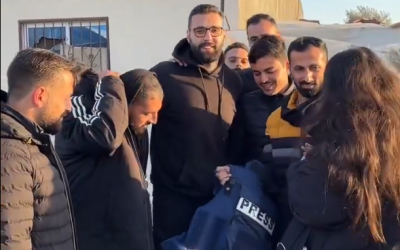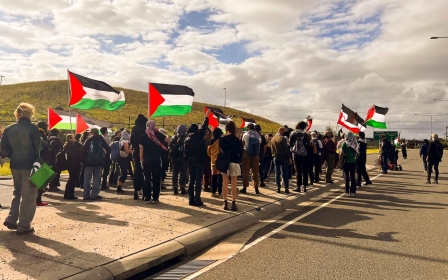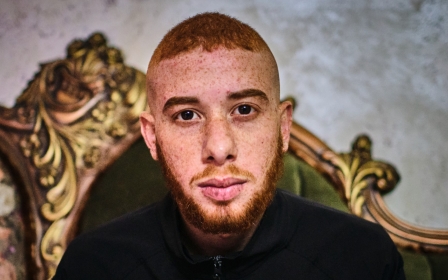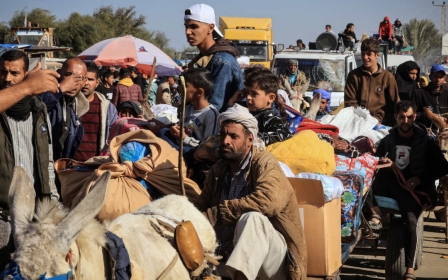Family of American teen killed in West Bank hits out at US aid to Israel
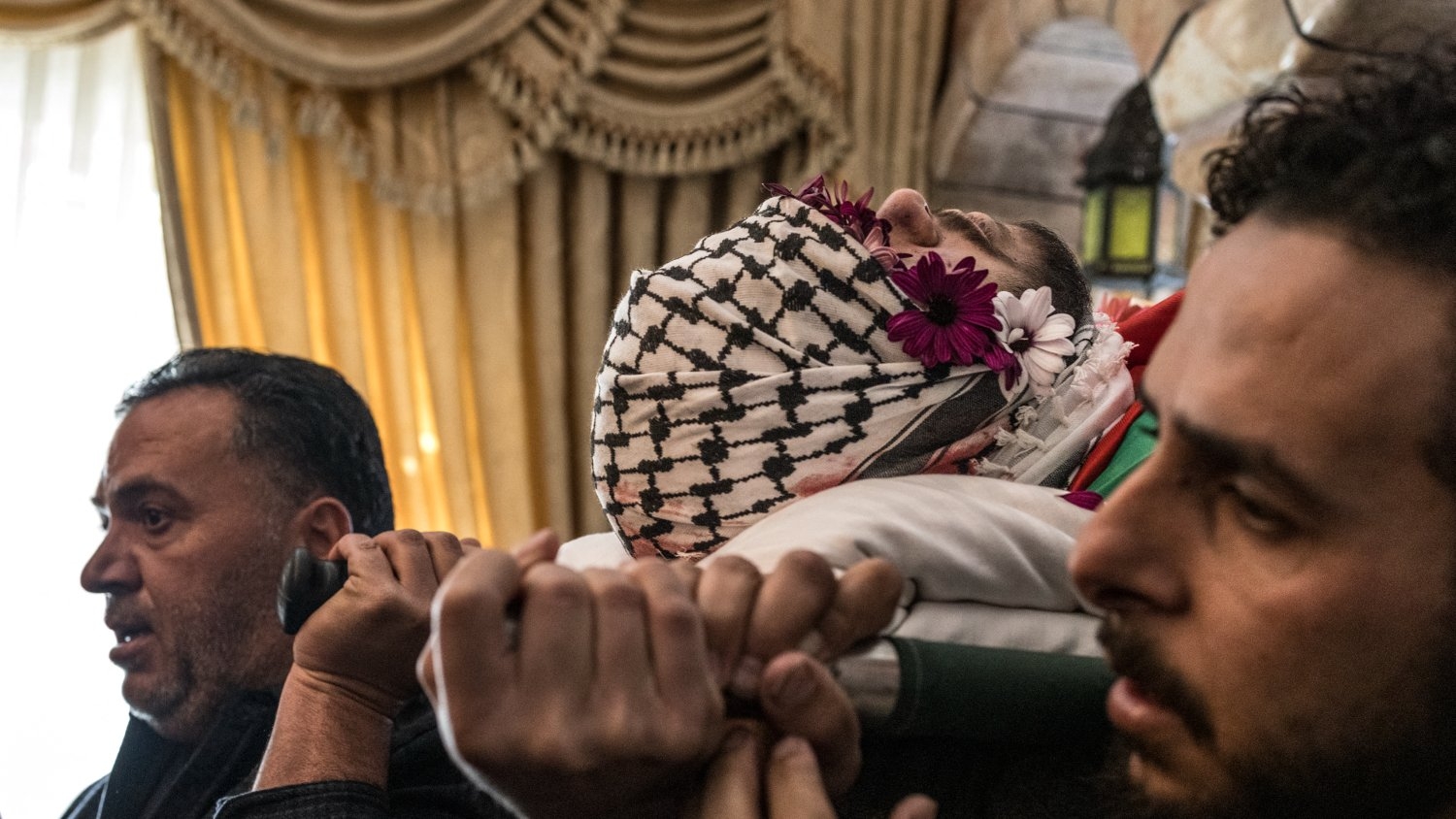
The family of a Palestinian-American teenager from Louisiana, who last week was shot dead by Israeli forces according to local news outlets, has condemned the killing as well as US military support for Israel.
The family says the support is providing weapons to Israel that are used to kill innocent Palestinians.
“They are killer machines – they are using our tax dollars in the US to support the weapons to kill our own children,” Hafez Ajjaq, father of the late 17-year-old Tawfiq Hafez Ajjaq, said of Israel’s forces, according to the Associated Press.
“How many fathers and mothers have to say goodbye to their children? How many more?” he said during the funeral for his son on Saturday, as reported by the AP.
He further called on Americans to “see with their own eyes” the ongoing violence, both from Israeli settler attacks and Israeli military raids, taking place in the occupied West Bank.
New MEE newsletter: Jerusalem Dispatch
Sign up to get the latest insights and analysis on Israel-Palestine, alongside Turkey Unpacked and other MEE newsletters
Ajjaq was born and raised in Gretna, Louisiana, across the river from New Orleans. Last summer his parents brought him and his siblings to al-Mazra’a ash-Sharqiya, a village in the West Bank, to help the children reconnect with Palestinian culture.
“[He was] a New Orleans native – a New Orleanian just like me and you,” Mohammad Abdeljabber, the boy's uncle, told WDSU, a television station in New Orleans.
Ajjaq's relatives and local Palestinian news outlets said he was killed by Israeli forces using live rounds. The live ammunition struck him in the head, and he died en route to hospital.
Follow our live coverage of the Israel-Palestine war here
Israeli police, meanwhile, said that Ajjaq was shot dead amid an incident “ostensibly involving an off-duty law enforcement officer, a soldier and a civilian”, without mentioning who shot the teenager. The police added that the gunfire during the encounter was directed at persons “purportedly engaged in rock-throwing activities”.
The Biden administration said it was "seriously concerned" by the reports of the killing, and called for an urgent investigation into the matter.
The United Nations Office for Coordination of Humanitarian Affairs (OCHA) reported that 348 Palestinians have been killed either by Israeli forces or Israeli settlers since October 2023.
US military support to Israel
Ajjaq's death echoes a similar killing in 2022 when Al Jazeera journalist and American citizen Shireen Abu Akleh was killed by Israeli forces during a military raid on Jenin.
The killing caused mass outrage from rights groups and civil society within the US, as well as lawmakers who called for an investigation into her killing while urging Washington to restrict aid to Israel.
At the time of Abu Akleh's death, Israel denied that its forces killed the journalist, only to later backtrack and say she was erroneously killed by its troops.
However, despite a months-long effort from Abu Akleh's family which included multiple meetings with US officials, as well as a formal request for the International Criminal Court to investigate the matter, justice remains elusive for the Palestinian American's family.
Since the war in Gaza began last October, US military aid to Israel has become a focal point both for its proponents and opponents.
A growing number of US lawmakers have been calling for the Biden administration to rein in its military support for Israel, which is currently facing an allegation of committing genocide in Gaza at the International Court of Justice.
Five Democratic Senators announced last week they would back an amendment introduced by Senator Chris Van Hollen requiring countries that receive US weapons to use them in accordance with humanitarian and US law. This brings the total number of senators backing the amendment to 18.
That amendment, if passed, could condition military aid to Israel.
Middle East Eye delivers independent and unrivalled coverage and analysis of the Middle East, North Africa and beyond. To learn more about republishing this content and the associated fees, please fill out this form. More about MEE can be found here.


